Is your car’s AC blowing hot air instead of cool relief? Don’t sweat it! This guide covers everything you need to know to diagnose and Fix My Car Air Con, from simple DIY fixes to more complex repairs requiring a professional touch. We’ll explore common problems, troubleshooting steps, and provide expert insights to help you get your car’s AC back in tip-top shape.
Having a functioning AC is crucial, especially during warmer months. If your car AC is on the fritz, check out how to fix my car air conditioner near me to find a local expert. A malfunctioning AC system can signal various underlying issues, ranging from low refrigerant levels to more serious problems with the compressor or other components. Ignoring these issues can lead to discomfort and potentially more expensive repairs down the line.
Common Car AC Problems
There are several reasons why your car AC might be underperforming. Some of the most common culprits include:
- Low Refrigerant: This is perhaps the most frequent cause of a malfunctioning AC. Leaks can develop over time, leading to insufficient refrigerant to cool the air.
- Electrical Issues: Problems with the wiring, fuses, or relays can disrupt the power supply to the AC system.
- Compressor Failure: The compressor is the heart of the AC system. If it fails, the entire system will cease to function.
- Clogged Condenser: The condenser releases heat, and if it becomes clogged with debris, it can’t function efficiently, affecting cooling performance.
- Faulty Evaporator: The evaporator absorbs heat from the cabin air. If it’s damaged or leaking, it can’t effectively cool the air.
- Blocked or Damaged Vents: Obstructions in the vents can prevent cool air from circulating properly.
Diagnosing the Problem
Before you start fixing your car AC, it’s important to pinpoint the exact problem. Here’s a step-by-step guide to help you diagnose the issue:
- Check the Air Filter: A dirty air filter can restrict airflow, making the AC seem less effective.
- Inspect the Refrigerant Lines: Look for any signs of leaks, such as oily residue or frost.
- Test the Compressor: Listen for the compressor clutch engaging when you turn on the AC. If you don’t hear it, there might be an electrical issue or the compressor itself might be faulty.
- Check the Fuses and Relays: Use a multimeter to check for continuity in the fuses and relays related to the AC system.
- Inspect the Condenser: Make sure the condenser fins are clean and free of debris.
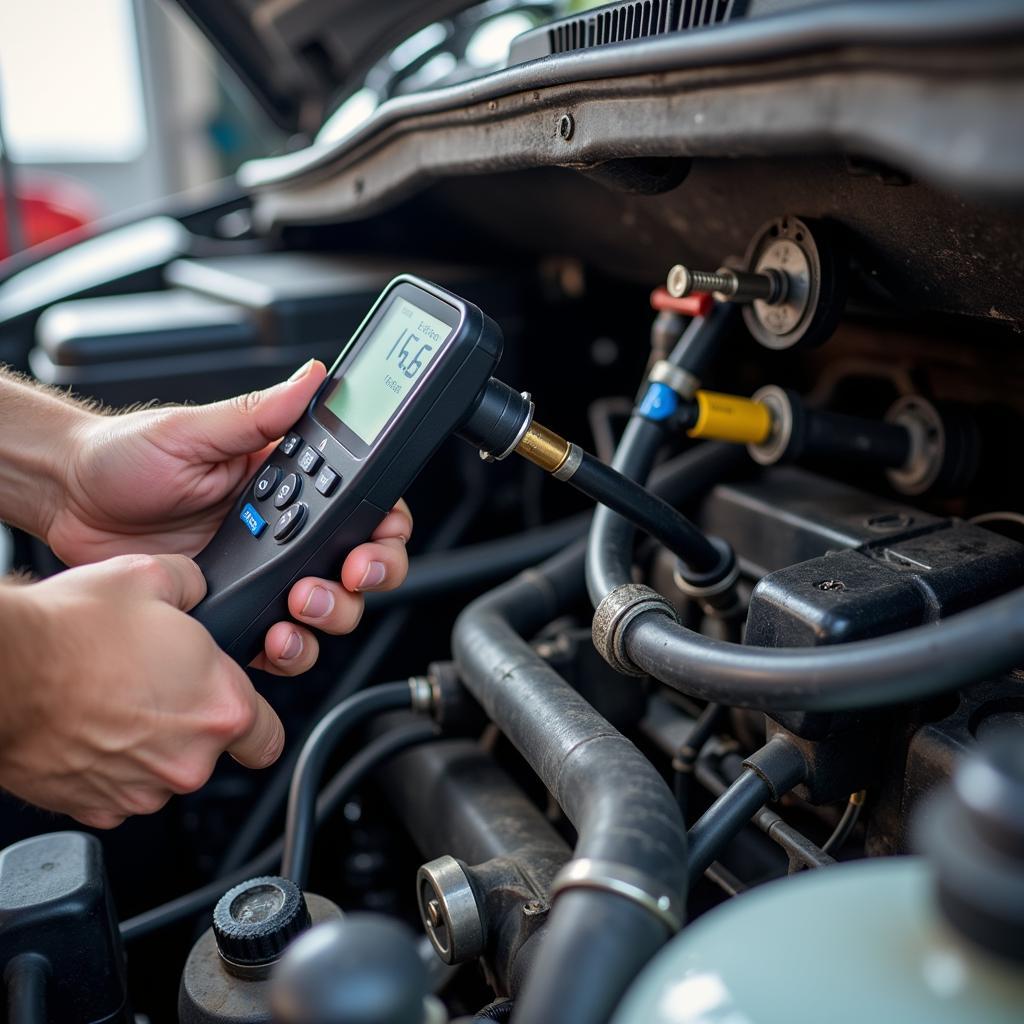 Checking for Car AC Refrigerant Leaks
Checking for Car AC Refrigerant Leaks
If you’re unsure about any of these steps, it’s best to consult a qualified mechanic. You may need to fix my car air conditioner toyota if you own that brand.
DIY Fixes for Minor AC Issues
Some minor AC problems can be addressed with simple DIY fixes:
- Recharge the Refrigerant: If you suspect low refrigerant, you can purchase a DIY recharge kit. However, be careful not to overcharge the system.
- Replace the Air Filter: This is a simple and inexpensive fix that can often improve AC performance.
- Clean the Condenser: You can clean the condenser fins with a garden hose or a specialized cleaning solution.
Need help figuring out how to perform these fixes? Check out resources like how can i fix my car air conditioner or how do i fix my car air conditioner for step-by-step guides and helpful tips.
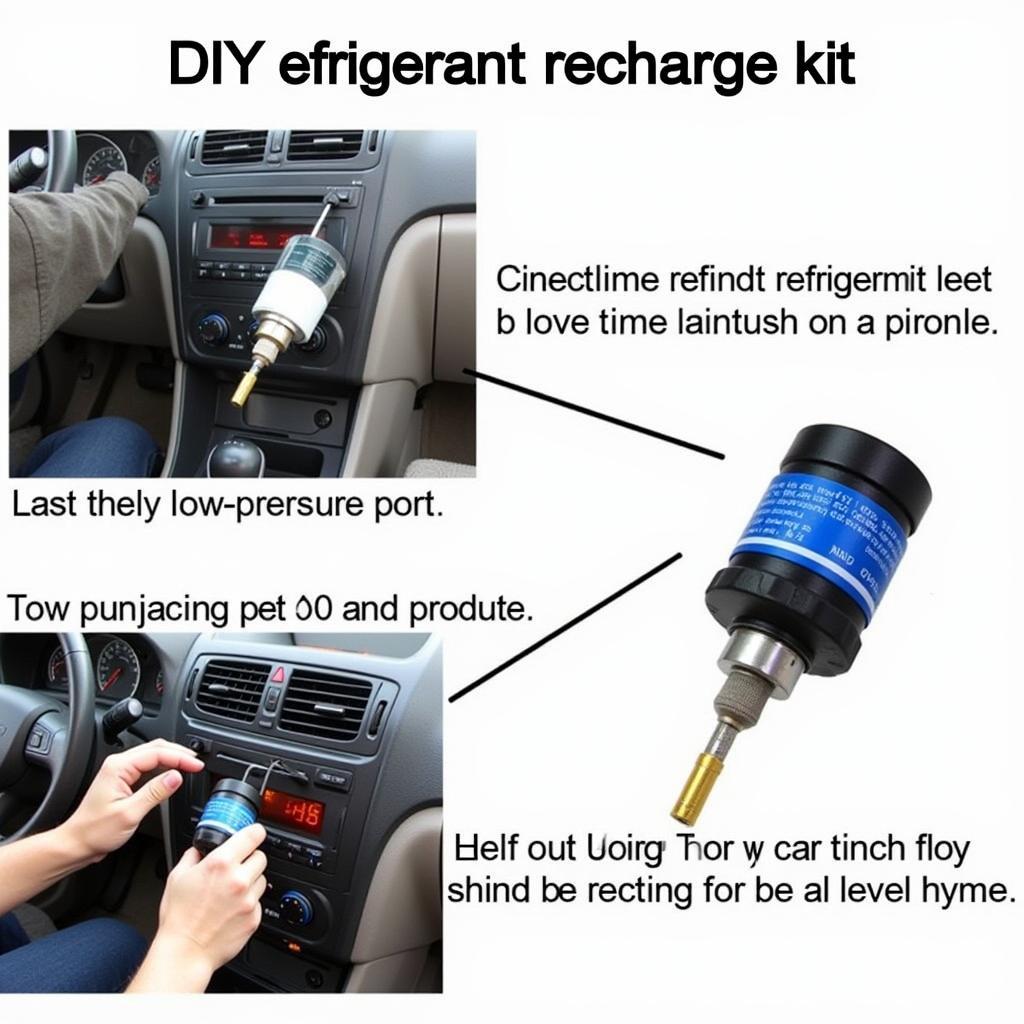 DIY Car AC Refrigerant Recharge
DIY Car AC Refrigerant Recharge
When to Call a Professional
If your AC problems persist after trying these DIY fixes, it’s time to call a professional. More complex issues like compressor failure or evaporator leaks require specialized tools and expertise. Don’t hesitate to seek professional help to avoid causing further damage. For those in the Palm Springs area, a search like “best mechanic fix my car air conditioner palm springs” can help find reputable services.
Maintaining Your Car AC
Regular maintenance can help prevent future AC problems. Here are a few tips:
- Regularly inspect and clean the condenser.
- Check the refrigerant levels periodically.
- Have the AC system serviced by a professional every year or two.
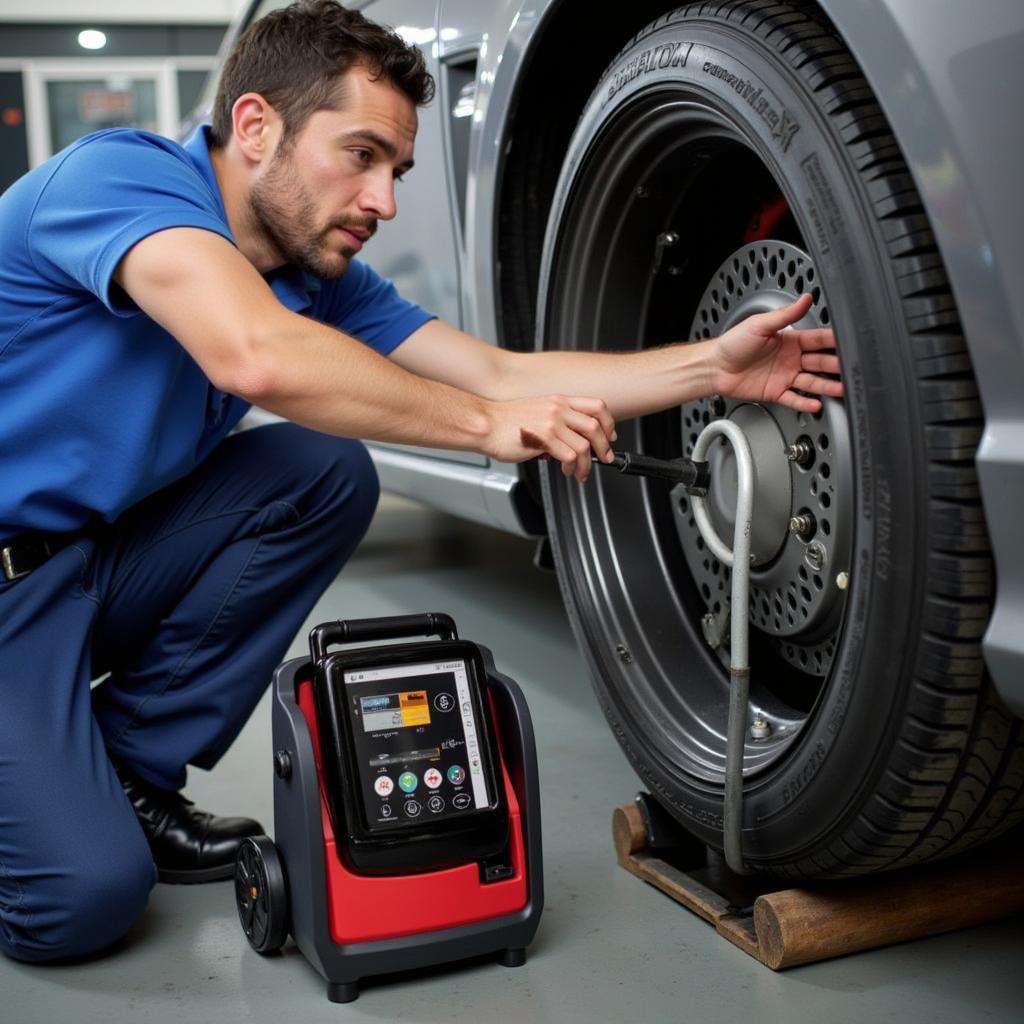 Professional Car AC Service
Professional Car AC Service
Conclusion
Fixing your car air con can be a straightforward process if you know what to look for. By following the steps outlined in this guide, you can diagnose and potentially fix minor issues yourself. However, don’t hesitate to contact a qualified mechanic for more complex problems. A properly functioning AC system is essential for a comfortable driving experience, so don’t let AC troubles put a damper on your summer drives! Need expert advice? Reach out to AutoTipPro at +1 (641) 206-8880 or visit our office at 500 N St Mary’s St, San Antonio, TX 78205, United States.
FAQ
- How often should I recharge my car’s AC refrigerant? Typically, every 2-3 years, but it depends on usage and if there are leaks.
- What does it mean if my car AC is blowing hot air? Several issues can cause this, from low refrigerant to a faulty compressor.
- How much does it cost to fix a car AC compressor? The cost varies, but it can range from a few hundred to over a thousand dollars.
- Can a dirty cabin air filter affect my AC performance? Yes, a dirty filter can restrict airflow and make the AC less effective.
- How can I tell if my car AC condenser is clogged? Visually inspect the condenser for debris or blockage. Reduced cooling performance can also indicate a clogged condenser.
- Is it safe to recharge my car’s AC myself? Yes, with a proper DIY kit and following instructions carefully.
- What’s the best way to find a reliable car AC repair shop near me? Online reviews, recommendations, and asking local mechanics are good starting points. You can also search “fix my car air conditioner near me” online.





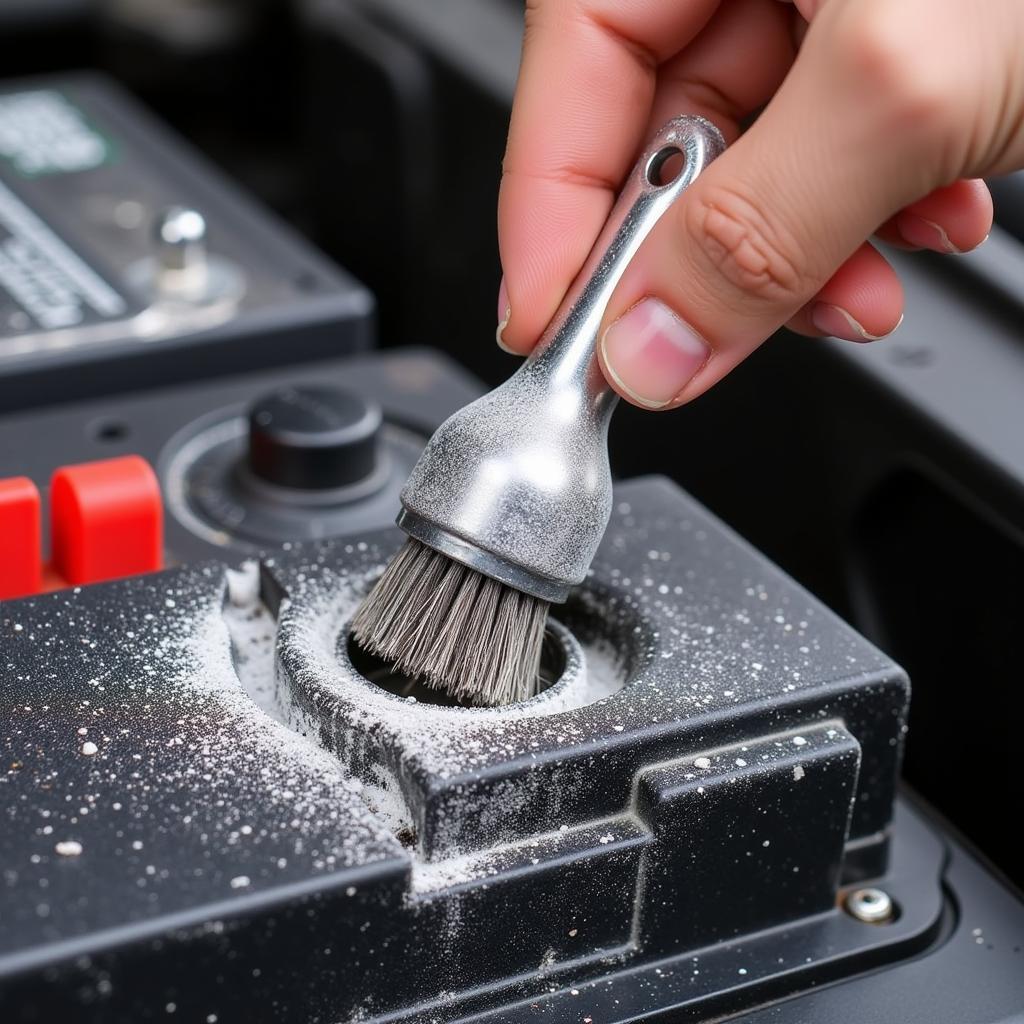
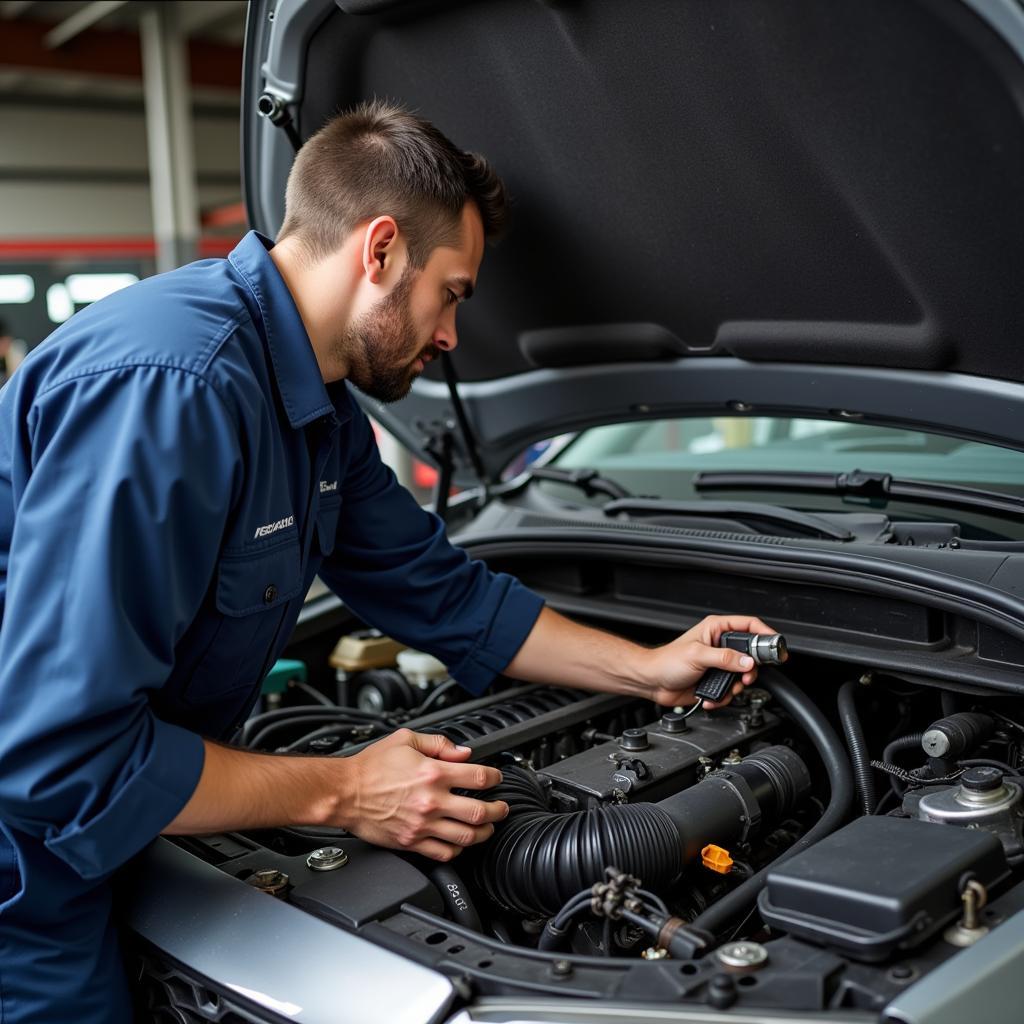
Leave a Reply